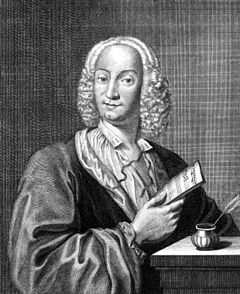
Orlando, usually known in modern times as Orlando furioso, is an opera in three acts by Antonio Vivaldi to an Italian libretto by Grazio Braccioli, based on Ludovico Ariosto's epic poem Orlando Furioso. The first performance of the opera was at the Teatro San Angelo, Venice, in November 1727. It is to be distinguished from an earlier Vivaldi opera of 1714, Orlando furioso, set to much the same libretto, once thought to be a revival of a 1713 opera by Giovanni Alberto Ristori but now considered by Vivaldian musicologists to be a fully-fledged opera by Vivaldi himself.
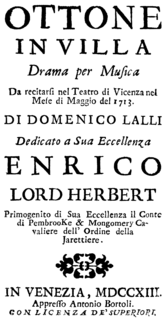
Ottone in villa is an opera in three acts by Antonio Vivaldi to an Italian libretto by Domenico Lalli. It was Vivaldi's first opera and premiered on 17 May 1713 at the Teatro delle Grazie in Vicenza. Lalli's pastoral drama is set in ancient Rome and was a condensed adaptation of Francesco Maria Piccioli's satirical libretto for Carlo Pallavicino's opera Messalina (1679). However, Lalli changed several of the characters in Piccioli's libretto. Messalina became an invented character, Cleonilla. Emperor Claudius became another Roman emperor, Otho (Ottone), who had already appeared as a protagonist in Monteverdi's L'incoronazione di Poppea (1642) and in Handel's Agrippina (1709).
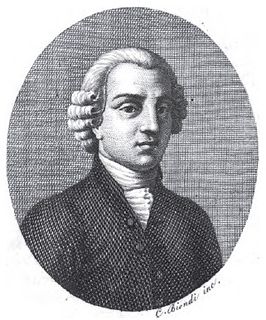
Argippo is an opera libretto by Domenico Lalli, which in Giovanni Porta's setting premiered in Venice in 1717. Claudio Nicola Stampa's reworked version of the libretto was set as L'Argippo by Andrea Stefano Fiorè. This opera was performed in Milan in 1722.

Alcyone is an opera by the French composer Marin Marais. It takes the form of a tragédie en musique in a prologue and five acts. The libretto, by Antoine Houdar de la Motte, is based on the Greek myth of Ceyx and Alcyone as recounted by Ovid in his Metamorphoses. The opera was first performed on 18 February 1706 by the Académie royale de musique at the Théâtre du Palais-Royal in Paris. The score is particularly famous for the storm scene (tempête) in act 4. The "Marche pour les Matelots", from act 3, became popular as a dance tune and is the basis of the Christmas carol "Masters in This Hall".
Il Mitridate Eupatore is an opera seria in five acts by the Italian composer Alessandro Scarlatti with a libretto by Girolamo Frigimelica Roberti. It was first performed, with the composer conducting, at the Teatro San Giovanni Grisostomo, Venice, on 5 January 1707. A failure at its premiere, Mitridate Eupatore is now considered one of the finest of Scarlatti's operas.
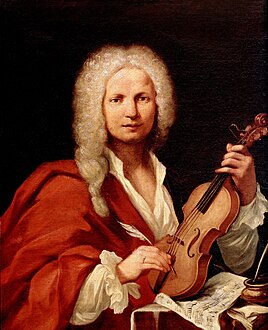
L'incoronazione di Dario is a dramma per musica by Antonio Vivaldi with an Italian libretto by Adriano Morselli. The opera was first performed at the Teatro Sant'Angelo in Venice on 23 January 1717.

Catone in Utica is an opera libretto by Metastasio, that was originally written for Leonardo Vinci's 1727 opera. Following Vinci's success, Metastasio's text was used by numerous composers of the baroque and classical eras for their own operas, including Pietro Torri (1736), Antonio Vivaldi (1737), Giovanni Battista Ferrandini (1753) and J. C. Bach (1761).
Antonio Maria Lucchini or Luchini was an Italian librettist. His texts were set to music by Antonio Vivaldi, Baldassare Galuppi, Leonardo Vinci, and Rinaldo di Capua, among others.
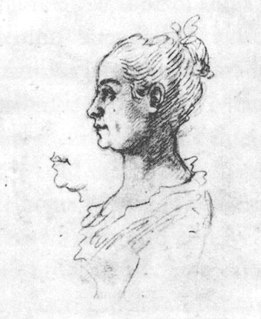
Didone abbandonata was an opera in three acts composed by Tomaso Albinoni. Albinoni's music was set to Pietro Metastasio's libretto, Didone abbandonata, which was in turn based on the story of Dido and Aeneas from the fourth book of Virgil's Aeneid. The opera premiered on 26 December 1724 at the Teatro San Cassiano in Venice and was the first time that an opera based on a Metastasio libretto was performed in Venice.

Semiramide riconosciuta is an Italian opera with serious action, or dramma per musica, by Nicola Porpora, set to a libretto by Metastasio with some textual changes, possibly by Domenico Lalli. The opera was written for some of the finest contemporary singers, and includes a technically demanding series of da capo arias.

Farnace is an 18th-century Italian opera in 3 acts by the Czech composer Josef Mysliveček. It was composed to a libretto by the Italian poet Antonio Maria Lucchini that is best known from a setting by Antonio Vivaldi first produced at the Teatro Sant'Angelo in Venice for the carnival operatic season of 1727. For a performance in the 1760s, it would only be expected that a libretto of such age would be abbreviated and altered to suit contemporary operatic taste; this libretto was unusually old, even older than all but one of the librettos by Metastasio that continued by be set in the 1760s. The cuts and changes in the text made for the 1767 performance of Mysliveček's opera are not attributable. Indeed, they are quite extensive; not a single one of Lucchini's original aria texts was re-set by Mysliveček. However, it is the same cut libretto of Farnace, with small variants, used by the Neapolitan Davide Perez in his opera for the Regio Teatro of Turin in the 1751 Carnival, and repeated in Rome at the Torre Argentina Theater the following year, and in Messina and Naples in 1753 and again in 1757.

Maria Grazia Schiavo is an Italian classical soprano who is particularly known for her performances of music from the baroque period. She has performed with major opera houses in Austria, France, Germany, Italy, and Spain, and has appeared in concerts throughout Europe.
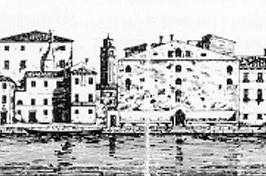
The Teatro San Angelo or Teatro Sant' Angelo was once a theatre in Venice which ran from 1677 until 1803.

Teatro San Samuele was an opera house and theatre located at the Rio del Duca, between Campo San Samuele and Campo Santo Stefano, in Venice. One of several important theatres built in that city by the Grimani family, the theatre opened in 1656 and operated continuously until a fire destroyed the theatre in 1747. A new structure was built and opened in 1748, but financial difficulties forced the theatre to close and be sold in 1770. The theatre remained active until 1807 when it was shut down by Napoleonic decree. It reopened in 1815 and was later acquired by impresario Giuseppe Camploy in 1819. In 1853 the theatre was renamed the Teatro Camploy. Upon Camploy's death in 1889, the theatre was bequeathed to the City of Verona. The Venice City Council in turn bought the theatre and demolished it in 1894.
L'incoronazione di Dario is an opera in three acts composed by Giacomo Antonio Perti to an Italian libretto by Adriano Morselli. It was first performed on 13 January 1686, at the Teatro Malvezzi in Bologna. Morselli originally wrote the libretto for Domenico Freschi's opera Dario which premiered at the Teatro San Angelo in Venice in 1685. Other later uses of the libretto include Giuseppe Aldrovandini's 1705 L'incoronazione di Dario and Vivaldi's 1717 L'incoronazione di Dario.
Anna Girò, also known as l'Annina del Prete Rosso, la Nina del Prete Rosso, or l'Annina della Pietà, was the stage name of Anna Maria(?) Maddalena Tessieri, an Italian mezzo-soprano/contralto of the 18th century. She is best remembered for her numerous collaborations with composer Antonio Vivaldi who wrote operatic roles for her. She is the singer who performed the greatest number of Vivaldi's operas, the one who kept them in her repertoire the longest time and who made them known across the largest geographical area.
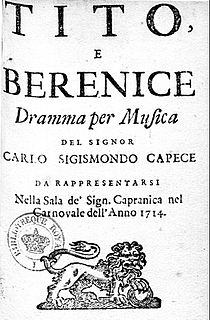
Tito e Berenice is an opera in three acts composed by Antonio Caldara to a libretto by Carlo Sigismondo Capece. It premiered on 10 January 1714 at the Teatro Capranica in Rome. The story centers on the love affair between Berenice of Cilicia and the future Roman Emperor Titus. The libretto borrows from earlier plays on the same subject by Corneille and Racine (Bérénice), both of which premiered in 1670 and took as their starting point Suetonius's brief account of the love affair in De vita Caesarum.

Sebastiano Biancardi, known by the pseudonym Domenico Lalli, was an Italian poet and librettist. Amongst the many libretti he produced, largely for the opera houses of Venice, were those for Vivaldi's Ottone in villa and Alessandro Scarlatti's Tigrane. A member of the Accademia degli Arcadi, he also wrote under his arcadian name "Ortanio". Lalli was born and raised in Naples as the adopted son of Fulvio Caracciolo but fled the city after being implicated in a bank fraud. After two years wandering about Italy in the company of Emanuele d'Astorga, he settled in Venice in 1710 and worked as the "house poet" of the Grimani family's theatres for the rest of his career. In addition to his stage works, Lalli published several volumes of poetry and a collection of biographies of the kings of Naples. He died in Venice at the age of 62.

Maria Caterina Negri was an Italian contralto who created numerous roles in 18th-century operas, including many by George Frideric Handel. She primarily portrayed male characters en travesti or female warriors such as Bradamante. Negri was born in Bologna and made her debut there at the age of 15. Her last known performance was in 1744. The date and place of her death are unknown. In its prime, her voice was known for its agility and wide vocal range.
